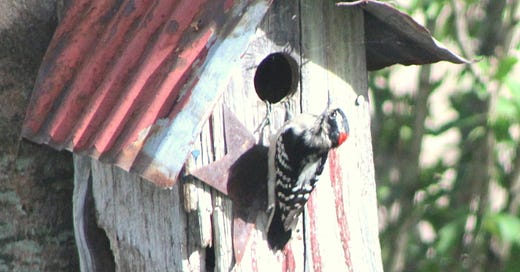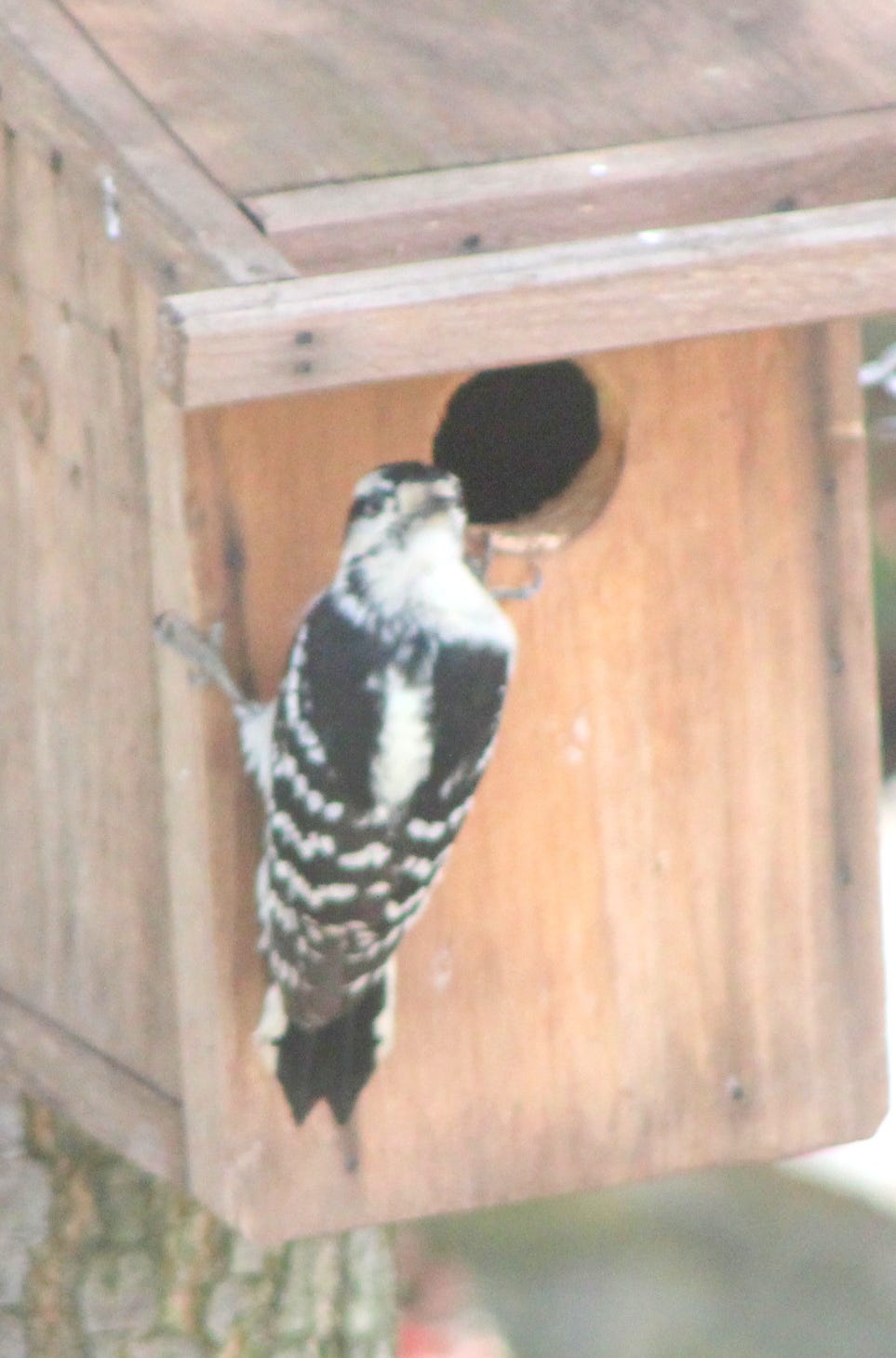From the beginning days of the United States of America, veterans have been the backbone of not only protecting and defending Americans, but due to the survival skills learned while in the military, they have been vital to the protection and survival of the American people when natural and manmade disasters strike.
See, for example, the Society of the Cincinnati or the American Revolution Institute. From the founding or the U.S., veterans have mastered and transmitted survival skills to their spouses, children, grandchildren, towns, and cities.
Continuing that tradition, below are some disaster resources offered by the Veteran’s Administration for veterans that may be of interest.
Disaster Resources Available for Veterans
For the latest updates and information visit VA’s Disaster Help website.
We are currently experiencing an unprecedented hurricane season, impacting millions of Americans. As we face this and other natural disasters like tornados and historic flooding, it’s important for Veterans and their families to know that the VA is here to help. In the wake of a disaster, here are some resources available to you.
Housing Assistance - If you or a Veteran you know needs immediate housing assistance in the aftermath of a natural disaster, call the National Call Center for Homeless Veterans, available 24/7: 1-877-4AID VETS (1-877-424-3838).
If you’ve relocated to a shelter or a disaster recovery center because of a natural disaster, we may have already deployed a team to connect you with the health care and benefits you need. If you need help finding housing, we’ll assign you to a case manager.
Learn more about disaster recovery centers on the FEMA website
If you have a VA loan and your home was affected by a natural disaster, please find information on the Home Loan Guaranty (LGY) website.
VA Contact Information - Reach us with any VA related questions or for information at:
MyVA411 main information line 24/7: 1-800-698-2411.
Health Care - If you’re enrolled in VA health care and a disaster has impacted you, we may already be in contact with you to learn how we can support you. If we haven’t contacted you, call your nearest VA medical center to speak with the patient advocate team.
Check out the Find VA locations tool to locate a facility closest to you.
Our emergency pharmacy service may be deployed during a natural disaster. These self-contained vehicles can serve as an outpatient pharmacy for Veterans in the affected area within a few hours.
If a natural disaster has impacted your access to needed prescriptions or medical equipment like oxygen tanks, we can work with mobile clinics, home health teams, and community care providers to get you the prescriptions and medical equipment you need.
VA may also stage Public Contact Teams at local shelters or in Disaster Recovery Centers (DRCs) to connect Veterans with needed health care and benefits, to include housing case management.
VA health benefits hotline is staffed Monday – Friday, 8 a.m. – 8 p.m. ET: 1-877-222-8387.
Natural disasters may impact your ability to reach us via phone. If you think your life or health is in danger, call 911 or go to the nearest emergency room. If you have non-urgent/emergency questions, you can reach VA through My HealtheVet secure messaging for appointment scheduling, prescription refills and to access your medical records.
If you do not have a My HealtheVet account, take time and register today. Do not forget to opt-in to receive email notifications for Secure Messaging.
VA supports Caregivers! Contact your local facility or the Caregiver’s Support Line: 1-855-260-3274.
Check out this toolkit to assist Caregivers plan for and react to natural disasters.
VA supports Civilian Health and Medical Program of the Department of Veterans Affairs (CHAMPVA) beneficiaries. Medications that you receive through Meds by Mail can also be refilled at your local pharmacy during an emergency. If you need a medication refill, please ask your primary care doctor to call it in to your local pharmacy. Medically necessary durable medical equipment may also be covered by CHAMPVA if you are impacted by a natural disaster.
Benefits and Compensation
Unable to get a benefit payment after a disaster? Contact the VA National Call Center and learn how to request a special one-time payment: 1-800-827-1000.
VA encourages mortgage servicers to put a 90-day pause on foreclosures and waive late charges after a disaster. Visit the VA home loans webpage to learn more.
If your school closes temporarily due to a disaster, VA may continue payments. Contact GI Bill specialists at: 1-888-442-4551.
If you are a displaced Veteran and receive employment services from VA, you may qualify for two additional months of Employee Adjustment Allowance (EAA).
Contact your local VA Regional Office to speak with your local Veteran Readiness & Employment (VR&E) Specialist to learn more.
VA Specially Adapted Housing Program may be able to assist you to fund home repairs after a disaster, following FEMA and insurance. Reach Adapted Housing at 1-877-827-3702.
If a disaster caused the loss of a previously adaptable automobile, VA may be able to help after insurance. Contact us at 1-800-827-1000.
Mail Contingency. If natural disasters disrupt the timeliness of VA receiving your important claims paperwork or gathering information from you, know that VA will not penalize you for subsequent mail delays. You may also submit claims and upload any other relevant information through your VA.gov account.
For life insurance
If you’re affected by a natural disaster, we may offer instant loan approvals online or provide same-day processing for policy loans.
We also provide same-day processing and approval for these:
Withdrawals from dividend credit and deposit accounts
A claim for when an insured person dies
The Office of Servicemembers’ Group Life Insurance (OSGLI) follows disaster alerts issued by each state’s Department of Insurance in the event of a natural disaster. These alerts generally pause insurance coverage from lapsing for people in affected areas and extend the grace period for premium payments.
To learn more, call us at 800-669-8477. We’re here from 8:30 a.m. to 6:00 p.m. ET.
To contact OSGLI, call us at 800-419-1473. We’re here from 8:00 a.m. to 5:00 p.m. ET. Or, you can email us at osgli.osgli@prudential.com .
Fraud
Some predators use natural disasters and emergencies to target Veterans. This may include disaster response imposters and scammers claiming they’re from charities offering fake emergency loans.
If you think you may be a victim of fraud, call us at 833-388-7233. We’re here 24/7.
VA’s Office of Emergency Management drives a comprehensive emergency management program at all VA facilities to ensure continuity of benefits and health care for Veterans. While we shared quite a few resources above, it is important to work with your local VA teams so they can fully support you following a natural disaster.
Learn more about disaster assistance resources for Veterans.
disaster assistanceHurricanetornado
Weather-related risks come in all shapes and forms and at any time. It’s essential for Veterans to take action and prepare for the worst while staying informed. Here are tips for Veterans during the spring storm and tornado seasons.
Understand the threat
Tornadoes, usually developing from severe thunderstorms, may strike with very little warning almost anywhere and can produce catastrophic, widespread destruction. Spring, between March and June, is peak season for tornadoes to potentially occur. They are incredibly violent; tornado winds will vary in speed, but can reach more than 200 mph and have the potential to destroy buildings, flip cars and create deadly debris.
Be alert and informed
Know the signs. Tornadoes could develop from rotating clouds; involve a loud roar, similar to a freight train; and appear as dark, greenish skies.
Sign up for alerts. Use the FEMA app, NOAA Weather Radio, and local emergency alert systems to receive warnings in real time.
Understand alerts. A tornado watch is an alert to be prepared, given favorable conditions, for a tornado to develop. A tornado warning means to immediately take shelter, as a tornado has been sighted or indicated by radar.
Build a tornado-specific emergency kit
Have a room identified that provides enhanced safety conditions where emergency supply kits can be stored. The supplies can include the following:
Water (one gallon per person per day for at least three days).
Non-perishable food.
Battery-powered or hand-crank radio (such as a NOAA Weather Radio).
Flashlights and extra batteries.
First aid kits.
Whistle (to signal for help).
Dust masks and plastic sheeting.
Local maps.
Copies of personal documents and medical records (use My HealtheVet to access VA records).
Medications, hearing aids, glasses and mobility device chargers.
Comfort items for kids or pets.
Create a tornado plan
Identify a safe shelter and location (possibly a basement or interior room on the lowest floor, away from windows).
Families should have a communication plan to ensure each member of the household knows how to reach one another and where to meet if separated.
Drill together to test the plans and practice tornado response actions regularly.
Know your VA support options
VA is here to support Veterans, family members and caregivers before, during and after disasters. Some key emergency response mechanisms include:
VA disaster assistance: Temporary housing, emergency prescriptions and replacement of damaged medical equipment.
VA mobile medical units: Various mobile assets deployed to affected areas to ensure continuity of care.
Mobile Vet Centers: Provide free, confidential counseling and crisis support with no appointments needed.
Veterans Crisis Line: Available 24/7 at 988 (press 1) or Text 838255 for support services during and after traumatic occurrences. You don’t have to be enrolled in VA benefits or health care to call.
My HealtheVet: Manages appointments, medication refills and access to online health records.
Connect with your community
Veterans may have a tendency to lead in emergency situations. If and when possible, check-in on neighbors who may need assistance, especially seniors or people with disabilities. Share your plans and encourage others to do the same.
Remember, preparedness isn’t just a checklist—it’s peace of mind. Stay informed and follow local guidance.
Resources
Get information on actions to take before, during and after a tornado.
Learn more about programs available to Veterans following disasters.
Learn about disaster assistance and resources.
More details on how to prepare for emergencies and disasters can be found at this VA website.
Future Dust
"I'll never look like that!"
I said to myself when we were offloaded
from the Lakeland Air Force Base
Officer Training School bus
and heard the upperclassmen
bark orders at us, the arriving class,
and saw the triple rings under their eyes.
Six weeks later, I looked like that
as I stood at the attention outside my room
on Saturday Morning Inspection
(as one upperclassman stood
outside my room looking at every detail
of my appearance for deviations
"Details will save your life!"
repeated by my teachers so often
it is forever burned into my mind,
and another ran over every detail in my room
from the folds in the mattress
to the spacing between my socks).
I broke after they left
to scan my demerits book
aware that so much depended
on my finally bringing those demerits down:
my graduation, the cohesion of my flight, honor,
the future of the United States of America.
And there it sat, like a turd
the inspector left behind
from his white-gloved hand:
"Future dust."
When the inspector returned
for questioning, I fired it right at him,
"What's 'future dust', Sir!?"
"I'd have had a perfect inspection
but for that demerit."
"Come over here, son."
he said in a thick Southern drawl.
He opened the blinds to let in the sun
and pointed at the air.
"What's that?" he said,
a thin grin opening on his face,
all the muscles in his future fighter pilot's body
preparing to press the red button on the joystick.
"Dust, Sir." I stated.
"Wrong, Officer Candidate Curley!
That's future dust!
In a few minutes it will land
on your desk and you failed to prevent it!
Therefore, you Sir, are guilty!
Guilty of letting down your flight!
Guilty of failing to prevent future dust!"
Three demerits. Good-bye!
As our teachers told us so many times,
they were preparing us for war.
Waging war has rules and surprises,
and surprises repeated often enough
become the rules of warfare.
Like future dust,
Or the future dust of a company
that fails to plan for the next bear market,
or the future dust of a family death,
or the future dust of the lack of preparation
for the next war and the deaths that will result,
or the dust of skyscrapers brought down
by fanatical jihadists,
or the future dust we will find
clogging the oxygen filters
of our interplanetary space ships to Mars.
So many years later,
I now know they were right.
We all must be eternally vigilant
to prevent future dust from landing,
if we are to have any chance at all
of a life in the space dust of the future.










